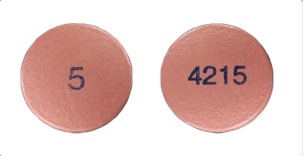Last Updated November 8, 2020
Onglyza is the brand name of the well-known anti-diabetic medication saxagliptin. Kombiglyze XR is the brand name of another anti-diabetic drug that combines saxagliptin and metformin HCL into one medication. Both drugs are prescribed to help sufferers of Type 2 Diabetes Mellitus (T2DM) better manage blood sugar levels. They are meant to be used in conjunction with diet, exercise, and other medications as part of a larger treatment strategy combating T2DM.
Although Onglyza and Kombiglyze present a novel treatment option that offers hope to a range of T2DM sufferers, they also carry with them a list of possible undesirable side effects that vary from less serious to potentially life-altering. According to the U.S. Food and Drug Administration (FDA) and the manufacturers of Onglyza and Kombiglyze, the following are some of the side effects noted during development and testing:
- Sore Throat
- Headache
- Joint Pain
- Rash
- Hives
- Skin Peeling
- Itching
- Swelling of the Face, Lips, Tongue, or Throat
- Difficulty Breathing or Swallowing
- Hoarseness
- Vomiting
- Loss of Appetite
- Excessive Tiredness
- Shortness of Breath
- Swelling of the Feet, Ankles, or Legs
- Sudden Weight Gain
Risk of Heart Failure
In 2015, researchers and physicians collected information as part of a comprehensive effort to study any potential association between saxagliptin and increased risk for heart failure. The study, known as “Saxagliptin Assessment of Vascular Outcomes Recorded in Patients with Diabetes Mellitus” (SAVOR), found that saxagliptin may increase the risk of hospitalization for heart failure by about 27%.
These results, in combination with other research findings, prompted the FDA to convene an advisory panel in April 2015 which concluded that saxagliptin may indeed increase the risk of heart failure in individuals taking the medication. On the heels of the advisory panel recommendations, the FDA issued a Drug Safety Communication in April 2016 warning of the increased risk. These warnings were also added to the drug labels for Onglyza and Kombiglyze.
To put the risk into perspective, the SAVOR trial examined patients taking saxagliptin for two years and noted the following:
- 3.5% of patients taking Onglyza were hospitalized for heart failure, compared to 2.8% for those who received a placebo. Put another way – if 1,000 people suffering from T2DM took Onglyza, 35 of them may theoretically be hospitalized for heart failure as opposed to 28 sufferers not taking the drug.
- Overall, those taking Onglyza had no increased risk of heart attack, stroke, or death from heart disease than those on placebo during the study.
People with preexisting heart disease history or kidney disease would have an increased risk of heart failure on Onglyza. The FDA recommends that prescribing physicians consider discontinuing the use of saxagliptin in patients who develop heart failure during treatment.
Pancreatitis and Pancreatic Cancer Risk
The British Medical Journal (BMJ) published an article in 2013 which shed light on growing safety concerns surrounding incretin mimetics. The article suggested that risks for developing pancreatitis and pancreatic cancer associated with these drugs were being downplayed. However, a follow-up investigation by the National Institute of Diabetes, Digestive and Kidney Diseases (NIDDIK) suggested that there was likely no increased risk of either ailment associated with incretin mimetics.
The FDA has issued a public warning about pancreatitis and pancreatic cancer associations with incretin mimetics. Furthermore, the agency announced that it would investigate ongoing post-market reports concerning pancreatic ailments, including pancreatic duct metaplasia in patients.
Joint Pain
In August 2015, the FDA issued a warning statement that saxagliptin may cause severe and disabling joint pain in patients. The warning followed an analysis of reports within the FDA’s own Adverse Event Reporting System (FAERS) database which noted that patients started having symptoms from one day to years after starting to take saxagliptin. After the patients stopped taking saxagliptin, their symptoms were relieved and tended to restart if they went back on the medication.
The FDA warning noted that patients should not stop taking saxagliptin but should contact their physician right away if they experience severe and persistent joint pain. Furthermore, health care professionals should consider saxagliptin (and similar drugs) as a possible cause of joint pain and discontinue the drug if appropriate.
Sources Cited (14)
1) “ONGLYZA” https://www.rxlist.com/onglyza-side-effects-drug-center.htm#overview
2) “Heart Failure Warnings Added to Labels for Onglyza and Nesina” https://diatribe.org/heart-failure-warnings-added-labels-onglyza-and-nesina#:~:text=The%20FDA%20has%20released%20a,heart%20failure%20in%20adults%20with
3) “FDA Drug Safety Communication: FDA adds warnings about heart failure risk to labels of type 2 diabetes medicines containing saxagliptin and alogliptin” https://www.fda.gov/drugs/drug-safety-and-availability/fda-drug-safety-communication-fda-adds-warnings-about-heart-failure-risk-labels-type-2-diabetes
4) “April 14, 2015: Endocrinologic and Metabolic Drugs Advisory Committee Meeting Announcement” http://wayback.archive-it.org/7993/20170112100803/http://www.fda.gov/AdvisoryCommittees/Calendar/ucm436451.htm
5) “No heart risk-or benefit-from diabetes drug Onglyza” https://www.health.harvard.edu/heart-health/no-heart-risk-or-benefit-from-diabetes-drug-onglyza
6) “Possible side effects of ONGLYZA” https://www.onglyza.com/side-effects.html
7) “Saxagliptin (Oral Route)” https://www.mayoclinic.org/drugs-supplements/saxagliptin-oral-route/side-effects/drg-20073116?p=1
8) “New Study Reports Increased Risk of Pancreatitis with Onglyza” https://newyork.legalexaminer.com/health/fda-prescription-drugs/new-study-reports-increased-risk-of-pancreatitis-with-onglyza/
9) “Acute pancreatitis associated with saxagliptin treatment presented by metabolic acidosis” https://www.practicaldiabetes.com/wp-content/uploads/sites/29/2016/06/Acute-pancreatitis-associated-with-saxagliptin-treatment-presented-by-metabolic-acidosis.pdf
10) “Nonclinical and clinical pharmacology evidence for cardiovascular safety of saxagliptin” https://www.ncbi.nlm.nih.gov/pmc/articles/PMC5598064/
11) “DPP-4 Inhibitors and Heart Failure: Some Reassurance, Some Uncertainty” https://care.diabetesjournals.org/content/diacare/39/5/735.full.pdf
12) “Overview of saxagliptin efficacy and safety in patients with type 2 diabetes and cardiovascular disease or risk factors for cardiovascular disease” https://www.ncbi.nlm.nih.gov/pmc/articles/PMC4278729/
13) “FDA Drug Safety Communication: FDA warns that DPP-4 inhibitors for type 2 diabetes may cause severe joint pain” https://www.fda.gov/drugs/drug-safety-and-availability/fda-drug-safety-communication-fda-warns-dpp-4-inhibitors-type-2-diabetes-may-cause-severe-joint-pain#:~:text=Safety%20Announcement,can%20be%20severe%20and%20disabling.
14) “FDA WARNING – DIABETES DRUGS LINKED TO SEVERE JOINT PAIN” https://ryortho.com/breaking/fda-warning-diabetes-drugs-linked-to-severe-joint-pain/

